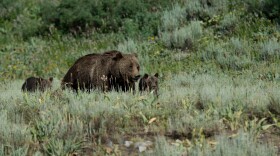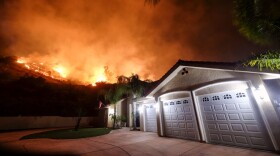-
The idea of a linear fuel break, or LFB, is pretty straightforward: by clearing grass or other fuel along fire-prone roads, or planting fire-resistant vegetation, you can slow the spread of wildfire. New research suggests they may save more money than they cost to install and maintain.
-
Last year, lawmakers turned to the Congressional Review Act to overturn Biden-era resources plans. Now, the tool is being looked at to unwind other public lands management actions.
-
As much of the Mountain West faces another dry winter, researchers are turning their attention underground to the water many communities rely on but rarely see.
-
Advocates worry this delay could signal a future attempt from the Trump administration to take grizzlies off the endangered species list.
-
A new law allows for this carve out in Nevada
-
Nevada voters will weigh in on reproductive rights. So might Wyoming and Idaho residents.
-
As the storied independent film festival prepares to leave its longtime home, attendees and film industry insiders look back.
-
As large solar projects become more common across the Mountain West, questions remain about their environmental footprint, especially in fragile desert ecosystems. New research from Nevada suggests that with careful planning, renewable energy development and rare native plants may be able to coexist.
-
Colorado is sending more athletes to Milan-Cortina to compete for Team USA than any other state.
-
Among Mountain West states rates vary drastically

Play Live Radio
Next Up:
0:00
0:00
Available On Air Stations










